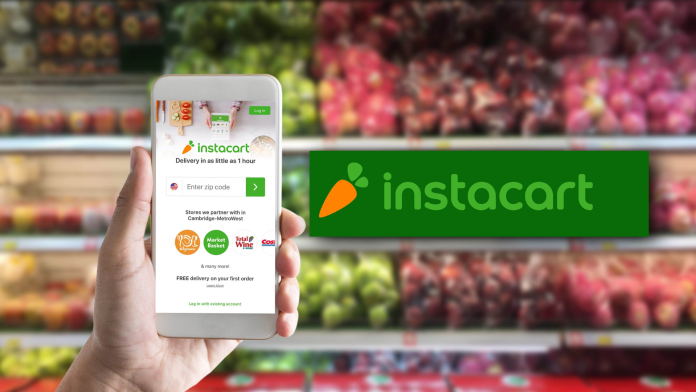Many major Wall Street brokerages, such as J.P. Morgan and Goldman Sachs, initiated coverage of Instacart with an optimistic perspective, showing confidence in the grocery delivery app’s expansion as consumers increasingly shift towards online shopping.
The company’s shares, formerly known as Maplebear, experienced a 1% decline on Monday. After a somewhat tepid debut in September, the stock closed at $25.57 on Friday, falling below its initial public offering (IPO) price of $30.
Following the end of the quiet period, over half of Instacart’s 20 IPO underwriters have initiated coverage with their top ratings.
Brokerages anticipate that Instacart’s advertising business will contribute to its profitability in the short to medium term. This is further bolstered by the company’s emphasis on the non-discretionary groceries category, which typically offers higher profit margins.
“As a technology company unburdened by inventory or large infrastructure, Instacart requires little capital expenditure to fund operations, with the potential for significant margin expansion,” Baird analyst Colin Sebastian wrote in a note.
However, Scott Devitt, an analyst at Wedbush, the sole brokerage with a price target lower than the IPO price, noted that the company’s incremental growth in gross transaction value (GTV) might face challenges due to competition from delivery firms like Uber, DoorDash, Amazon, and major retailer Walmart.
“Lack of exposure to growing grocery businesses such as Walmart and Amazon could drive share loss at Instacart,” said Justin Post, analyst with BofA Global Research, which has a price target of $30.
Piper Sandler analyst Alexander Potter highlights Instacart’s slower growth compared to its competitors as a primary concern. He suggests that the decrease in food stamp benefits and a return to in-store shopping may potentially restrict the growth of Gross Transaction Value (GTV) for the company.
Analysts at J.P. Morgan pointed out that the increasing popularity of weight-loss drugs may have a negative impact on consumer spending in the food industry, potentially posing a challenge to the company’s growth and profitability.
As of Friday, the six brokerages that were not involved in the IPO started coverage with an average rating of “hold”, LSEG data showed.
According to data from LSEG, Instacart is currently trading at a multiple of 54.4 times its forward earnings.





